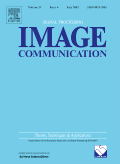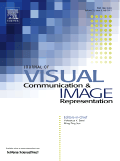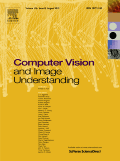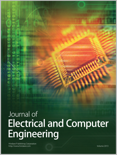
Journal of Real-Time Image Processing
metrics 2024
Innovating Solutions for Instantaneous Image Analysis
Introduction
Journal of Real-Time Image Processing, published by SPRINGER HEIDELBERG, is a renowned peer-reviewed journal dedicated to the field of real-time image processing. With an ISSN of 1861-8200 and an E-ISSN of 1861-8219, this journal operates under a rigorous academic framework, ensuring high-quality publications that cater to both theoretical and practical advancements in the discipline. Since its inception in 2006, it has continually evolved, maintaining a Q2 ranking in Information Systems according to the 2023 Category Quartiles. This journal ranks #103 out of 394 in Scopus for Computer Science - Information Systems, positioning it within the top 27% percentile, which underscores its significance in the research community. Its focus on the intersection of image processing and real-time applications makes it a vital resource for researchers, professionals, and students eager to explore and contribute to cutting-edge developments in the field. Though it does not currently offer open access, the journal's comprehensive scope and commitment to disseminating impactful research make it an essential platform for advancing knowledge in real-time image processing.
Metrics 2024
 0.70
0.70 2.90
2.90 1.90
1.90 43
43Metrics History
Rank 2024
Scopus
IF (Web Of Science)
JCI (Web Of Science)
Quartile History
Similar Journals

MULTIMEDIA TOOLS AND APPLICATIONS
Pioneering insights in multimedia tools and their applications.MULTIMEDIA TOOLS AND APPLICATIONS, published by Springer, is a highly regarded journal in the fields of Computer Networks and Communications, Hardware and Architecture, Media Technology, and Software. Since its inception in 1995, this journal has established itself as a vital platform for disseminating innovative research and developments, maintaining a prominent position evidenced by its Q2 and Q1 rankings across various categories as of 2023. With an ISSN of 1380-7501 and an E-ISSN of 1573-7721, it continues to attract high-quality contributions from scholars and practitioners worldwide. Although it does not currently offer Open Access options, its impact is reflected in impressive Scopus rankings, placing it in the top quartiles in multiple categories, including a remarkable 10th rank in Media Technology. As the field evolves rapidly, the journal’s objectives encompass advancing multimedia technologies and exploring their multifaceted applications, making it an essential resource for researchers, professionals, and students seeking to stay at the forefront of this dynamic discipline. For more information, visit the journal's page to explore recent publications and submission guidelines.

VISUAL COMPUTER
Exploring the Intersection of Art and TechnologyVISUAL COMPUTER is a prestigious journal published by Springer, focusing on the dynamic fields of computer graphics, computer-aided design, computer vision, and software. Established in 1985, this interdisciplinary journal serves as a vital platform for sharing innovative research, applications, and developments crucial to the advancement of visual computing technologies. With a notable Q2 ranking in various categories, including Computer Graphics and Computer-Aided Design, and Computer Vision and Pattern Recognition, VISUAL COMPUTER demonstrates a solid impact within the academic community, marked by its Scopus rankings that reflect its significant contributions to the field. While the journal does not offer open access, it remains a reliable source of high-quality content for researchers, professionals, and students eager to stay abreast of emerging trends and techniques, ultimately fostering collaboration and knowledge exchange within the rapidly evolving landscape of visual computing.

SIGNAL PROCESSING-IMAGE COMMUNICATION
Pioneering Research in Image Processing ExcellenceSIGNAL PROCESSING-IMAGE COMMUNICATION, published by Elsevier, is a leading journal in the fields of Computer Vision, Signal Processing, and Electrical Engineering. With an impressive range of Quartile rankings in 2023, including Q1 in Electrical and Electronic Engineering and Q2 in Signal Processing, this journal is vital for researchers and professionals seeking the latest advancements and comprehensive studies in image communication technologies. Issued in the Netherlands, SIGNAL PROCESSING-IMAGE COMMUNICATION has been an essential resource since its inception in 1989, fostering innovation and collaboration among academia and industry. The journal provides a platform for high-quality peer-reviewed research, addressing significant challenges and solutions in the convergence of image processing and communication. Although currently not an Open Access journal, it offers subscription options that ensure a broad dissemination of groundbreaking knowledge. With a robust reputation reflected in its Scopus ranks, this journal serves as an indispensable reference for students and experts aiming to stay at the forefront of developments in this dynamic field.

JOURNAL OF VISUAL COMMUNICATION AND IMAGE REPRESENTATION
Bridging Disciplines through Innovative Visual MediaJOURNAL OF VISUAL COMMUNICATION AND IMAGE REPRESENTATION, published by Academic Press Inc Elsevier Science, is an influential platform dedicated to the realms of visual communication, media technology, and advanced image representation. With a strong focus on interdisciplinary approaches, this journal aims to foster the exchange of innovative ideas among researchers and professionals in the fields of computer vision, image processing, and signal processing. Recognized for its significance, it boasts an impressive impact factor within its category quartiles; notably, it ranks Q2 in Computer Vision and Pattern Recognition and Electrical and Electronic Engineering, while achieving Q1 in Media Technology. Based in the United States, the journal not only provides valuable insights into the latest developments from 1990 to 2024 but also encourages cutting-edge research that enhances multimedia systems and user interactions. As a vital resource for students, researchers, and industry professionals alike, the journal ensures a robust understanding of visual information processing, critical for navigating today's digital landscape.

COMPUTER VISION AND IMAGE UNDERSTANDING
Illuminating Innovations in Computer VisionCOMPUTER VISION AND IMAGE UNDERSTANDING is a leading academic journal published by Academic Press Inc, Elsevier Science, dedicated to the advancement of the fields of computer vision, image understanding, and pattern recognition. Since its inception in 1993, this esteemed publication has garnered a reputation for excellence, achieving a remarkable Q1 ranking in the categories of Computer Vision and Pattern Recognition, Signal Processing, and Software as of 2023. With its robust impact factor and high visibility in the scientific community—ranking #22 out of 106 in Computer Vision and Pattern Recognition and #27 out of 131 in Signal Processing—this journal serves as a vital resource for researchers, professionals, and students looking to explore and contribute to state-of-the-art developments. Although it does not operate under an Open Access model, its rigorous peer-reviewed content ensures quality and relevance in a rapidly evolving technological landscape. The journal’s commitment to fostering innovation makes it an essential tool for anyone engaged in the study and application of computer vision technologies.

Signal Image and Video Processing
Connecting Theory with Practice in Signal ProcessingSignal Image and Video Processing, published by Springer London Ltd, is a cutting-edge academic journal dedicated to the fields of electrical and electronic engineering and signal processing. With an ISSN of 1863-1703 and an E-ISSN of 1863-1711, this journal plays a pivotal role in disseminating innovative research findings from 2007 to 2024, boasting a commendable Q2 ranking in its respective categories. Located in the United Kingdom, the journal attracts a diverse readership of researchers, professionals, and students eager to explore advancements in signal processing technologies and their applications in imaging and video analysis. Although it does not offer open access, its rigorous peer-review process ensures the publication of high-quality, impactful research, evident by its respectable rankings within Scopus in both electrical engineering and computer science domains. The journal serves as vital resource for those aiming to stay at the forefront of technological developments and research in image and video processing.

Journal of Electrical and Computer Engineering
Transforming Knowledge into Engineering ExcellenceJournal of Electrical and Computer Engineering is a premier open-access journal published by HINDAWI LTD, dedicated to advancing the fields of electrical and computer engineering. With an ISSN of 2090-0147 and an E-ISSN of 2090-0155, this journal has been providing a platform for cutting-edge research since its inception in 2007. Based in the United States, it operates from its address at ADAM HOUSE, 3RD FLR, 1 FITZROY SQ, LONDON W1T 5HF, ENGLAND. The journal has established itself with a healthy impact factor, classified in the 2023 Q2 quartile for both Computer Science (Miscellaneous) and Electrical and Electronic Engineering, demonstrating its growing influence in the academic community. Additionally, its ranking positions it within the 67th percentile in General Computer Science and the 61st percentile in Electrical and Electronic Engineering on Scopus, indicating its significant contribution to these fields. Covering an extensive scope from 2010 to 2024, the journal seeks to publish innovative research articles, reviews, and case studies that explore new techniques and applications in electrical and computer engineering, benefiting a wide audience of researchers, professionals, and students focused on these rapidly-evolving areas.

IEEE MULTIMEDIA
Elevating the standards of multimedia scholarship.IEEE Multimedia, published by IEEE Computer Society, is a prestigious journal dedicated to advancing the fields of multimedia technology and innovations in computing. With an ISSN of 1070-986X and an E-ISSN of 1941-0166, the journal has established a significant impact within the academic community, holding an impressive ranking in various categories: Q2 in Computer Science Applications, Hardware and Architecture, Signal Processing; Q1 in Media Technology; and Q2 in Software as of 2023. Spanning from 1994 to 2024, IEEE Multimedia strives to publish cutting-edge research and development findings, focusing on the convergence of multimedia with engineering and computing disciplines. Researchers and professionals across these domains are encouraged to engage with its rigorously peer-reviewed content, enhancing their understanding and application of multimedia methodologies in their respective fields.

MULTIMEDIA SYSTEMS
Unveiling Cutting-Edge Developments in Multimedia TechnologyMULTIMEDIA SYSTEMS, published by SPRINGER, is a premier academic journal dedicated to the dynamic field of multimedia technology and its applications across various domains. With the ISSN 0942-4962 and E-ISSN 1432-1882, this journal has established itself as an essential resource since its inception in 1993, providing researchers and professionals with rigorous peer-reviewed articles that explore innovative developments in Media Technology, Computer Networks, Hardware Architecture, Information Systems, and Software. As a testament to its academic impact, MULTIMEDIA SYSTEMS has attained a Q2 ranking in multiple key categories for 2023, alongside a notable Q1 ranking in Media Technology, highlighting its significance within the community. With a rich repository of knowledge and ongoing commitment to advancing multimedia research, this journal is an invaluable asset for those seeking to stay informed about cutting-edge technologies and methodologies. While the journal follows a traditional subscription model and is not presently open access, it ensures high-quality content that serves the scholarly needs of its audience, facilitated by its accessibility from Germany's respected academic infrastructures. For inquiries and submissions, the journal is based in New York, NY, further illustrating its global academic reach.

Journal of Imaging
Elevating Standards in Imaging and Pattern RecognitionThe Journal of Imaging, published by MDPI, is an esteemed open-access journal dedicated to advancing the fields of Computer Graphics, Computer Vision, and Electrical Engineering. Since its inception in 2015, this journal has established a significant presence in the academic community, reflected by its impressive rankings in Scopus, including a Q2 quartile in multiple categories such as Computer Vision and Pattern Recognition and Radiology. With a commitment to disseminating high-quality research, the journal offers a platform for innovative studies and practical applications, making it an essential resource for researchers, professionals, and students alike. Operating from its base in Basel, Switzerland, the journal continues to promote scholarly work that pushes the boundaries of imaging technologies, while contributing to the global discourse in its respective fields. The open-access model ensures that valuable research is readily available, fostering collaboration and knowledge-sharing across disciplines.